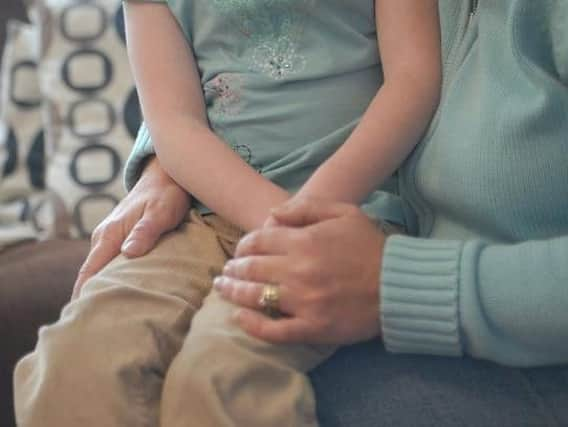Battle to find settled places for the borough's foster children


Councillors on the Children and Young People Overview and Scrutiny Committee heard dozens of youngsters are suddenly being wrenched from the surroundings where they are being looked after because of problems which cannot be solved.
And scores of young people have such challenging behaviour and complex needs they have lived in between three and eight different places in the space of a year, the report said.
Advertisement
Hide AdAdvertisement
Hide AdThe Deal for Foster Carers laid bare the scale of the difficulties finding suitable homes to bring up youngsters in the borough who cannot remain with their birth families and suggested overhauling the system to make foster caring easier and more attractive for residents.
However, despite the ongoing challenges the report also suggests the majority of children in the foster system are in long-term placements, with 174 having been with their carer two or more years.
Well-publicised issues about shortages of foster carers also do not affect Wigan, with new people coming into the system at a rate outstripping those leaving.
The scrutiny committee was told 45 placements came to a sudden and unexpected halt between April 2018 and April 2019, 22 of them internally and 23 externally.
Advertisement
Hide AdAdvertisement
Hide AdAnd concern was raised that 63 children are currently placed for adoption or going through care proceedings while 47 youngsters experienced three moves or more in the 12-month period, with four having seven or eight changes of foster carer.
The report said: “There are a worrying number of children who are not able to achieve permanence due to placement moves and unplanned endings.
“There were 47 children who experienced three moves or more. For these children and young people, the family finding process becomes increasingly difficult as their needs become more complex with each move.
“This is caused by the trauma they experience from the move and the impact this has on their capacity to emotionally attach with a trusted adult.
Advertisement
Hide AdAdvertisement
Hide Ad“Since November 2018 we have begun to see a decrease in the number of unplanned endings internally."
However, the external figures do remain volatile and we are aware that there is more work we need to do here.
These unplanned endings were due to the carer no longer being able to meet their needs.
“In most instances unplanned endings are a result of children’s emotional presentation impacting on their ability to form attachments and settle both at home and school.”
Advertisement
Hide AdAdvertisement
Hide AdIn the same April 2018 to April 2019 period 16 people deregistered as foster carers. Two also moved to independent fostering agencies, believing therapeutic support for the youngsters would be better. However, in the same period 23 foster carers were approved.
At the end of April 2019 195 households were looking after 274 children. More than 70 per cent of children in care are with a family.
Wigan Council is also currently trying to figure out why there was a spike in young people entering care in emergency circumstances in February and March.
However, since November 2018 the overall population of children in care has been reducing, with 159 entering the system between April 2018 and April 2019 and 187 leaving care in that same timeframe.
Advertisement
Hide AdAdvertisement
Hide AdThe council now wants to provide a better service for foster carers by developing a support team including a speech and language therapist, a clinical psychologist, three targeted placement workers, specialist carers for those being remanded into local authority care, an education lead and a specialised out-of-hours call service.
The report also says the traditional respite care offered to carers should be replaced with access to short breaks and the payments system made simpler.
It is hoped the changes will reduce unplanned endings by at least four.
This would avoid the council shelling out £108,000 to foster them with independent providers or £748,000 to put them in a residential placement elsewhere.
Advertisement
Hide AdAdvertisement
Hide AdJames Winterbottom, director of children’s services at the council, said: “We need to recruit more foster carers and give them the very best support.
“Through The Deal for Foster Carers and our Mockingbird and ATOM programme, foster carers receive support, training and advice from other experienced foster carers in the area and our dedicated fostering team.
“We still need more foster carers to come forward and would encourage anyone who is thinking of becoming a foster carer to get in touch with us.
“We are looking for a range of people to offer stable homes for our children and young people, building up trusting relationships and allowing them the space and time and build their confidence.”